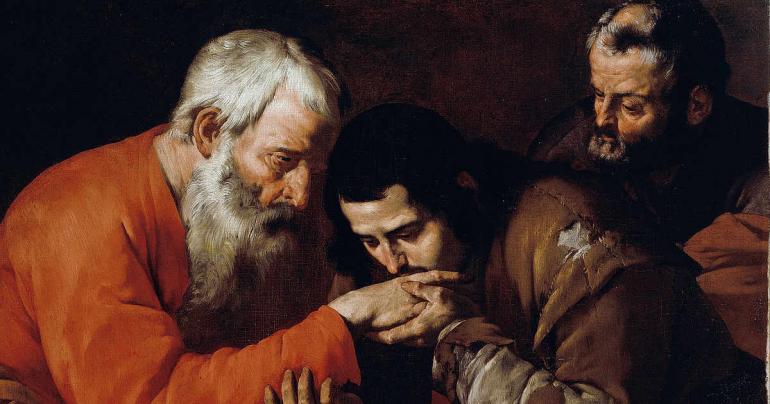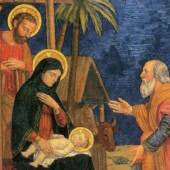Lost and Found

September 11, 24th Sunday in Ordinary Time
Daily Readings: Exodus 32:7-11, 13-14; 1 Timothy 1:12-17 & Gospel: Luke 15:1-32
“This man welcomes sinners and eats with them.”
In this Sunday’s Gospel reading, the setting is still the Pharisees and scribes grumbling among themselves, displeased at seeing Jesus allowing tax collectors and sinners, who are considered unclean, to come near him so they can listen to him. In response to their gripes, Jesus presents to them three parables, apparently to make them aware of the implications of their reactions. These parables depict God’s relentless search for his children who, through their attitudes and actions, choose to move away from his love and protective embrace.
The first two parables about the lost sheep and the lost coin are short, focusing on God’s actions – his search for the lost one, his rejoicing after finding it, and even his inviting others to celebrate with him.
The third parable is quite lengthy, and is commonly referred to as the Parable of the Prodigal Son, a description for the younger of the two sons in the story. But it is also worth paying attention to the attitude shown by the elder son towards the end of the parable. We will realize that we have two lost sons in the story.
As we listen to Jesus telling the story, we begin to know that the younger son becomes lost when he asks for his share of his inheritance from his father. He decides not to have anything to do with his father when he leaves home and wanders off. He lives an extravagant and wasteful life and squanders all that he received from his father. Later, he ends up in a sorry state, and coming to his senses he recognizes his mistake and realizes that that his father’s servants live a much better life than he does. He is ready to go home and ask for forgiveness.
At any of these points, do we see parallels between our life today and that of the younger son?
We know too that the father, on seeing his younger son approaching, runs to him and embraces and kisses him. He doesn’t need to listen to what his son has to say. For him, all is well and he is full of joy because of his son’s return. He even restores his original dignity by dressing him up with the finest robes, putting a ring on his finger and sandals on his feet. His response is one of full welcome, non-judging, and ready to celebrate with the others.
Next, Jesus presents the elder son, as a challenge to the Pharisees and the scribes watching him.
The elder son becomes angry at being told that his brother is back and that his father is throwing a party for him. He refuses to join the party, and his father has to come out and reason with him. As we hear his complaints, we realize that even if he has been staying with his father all this time, he has so much resentment towards the old man. But the father tells him, “My son, you are here with me always; everything I have is yours.” It is unfortunate that he is blind to what he does have and remains unappreciative. He is self-righteous, and feels he is not being treated as he deserves. He doesn’t understand his father’s heart. Even if this son has chosen to stay in his father’s home, he is lost and doesn’t know it.
Jesus ends the parable with the father continuing to ask his elder son to rejoice with him because of his brother’s return. Just as He challenges the Pharisees and scribes to make a response, He is also asking us to do the same.
Do we sometimes feel that we deserve more than what we are receiving because of the importance of our work? Do we sometimes feel entitled after the many years we have been in the ministry? Or do we rejoice with the community when others who are lost are now found, when others undergo conversion and take their space among us?
Let us continue to reflect on this love that God so freely and lavishly pours on us, undeserving though we are. Let us continue to understand that God would go the extra mile to win us back, not judging, but full of mercy and compassion, whenever we turn our backs on him and go our separate ways.
God waits for us with outstretched arms today. How do we respond?
Radio Veritas Asia (RVA), a media platform of the Catholic Church, aims to share Christ. RVA started in 1969 as a continental Catholic radio station to serve Asian countries in their respective local language, thus earning the tag “the Voice of Asian Christianity.” Responding to the emerging context, RVA embraced media platforms to connect with the global Asian audience via its 21 language websites and various social media platforms.











